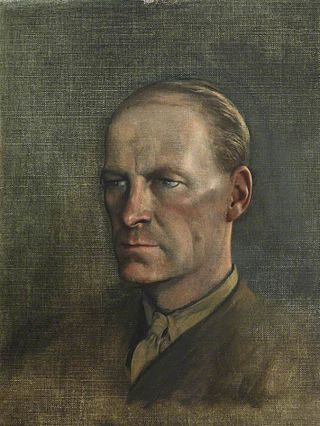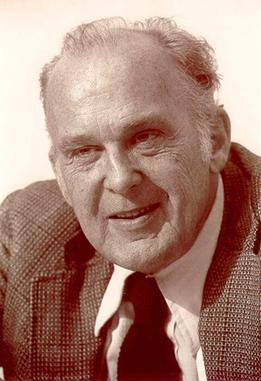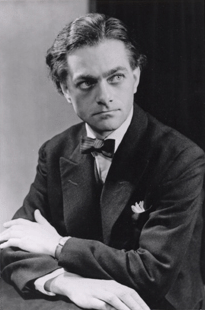Related Research Articles

James Mark Baldwin was an American philosopher and psychologist who was educated at Princeton under the supervision of Scottish philosopher James McCosh and who was one of the founders of the Department of Psychology at Princeton and the University of Toronto. He made important contributions to early psychology, psychiatry, and to the theory of evolution.
The British Psychological Society (BPS) is a representative body for psychologists and psychology in the United Kingdom.

Gilbert Ryle was a British philosopher, principally known for his critique of Cartesian dualism, for which he coined the phrase "ghost in the machine." He was a representative of the generation of British ordinary language philosophers who shared Ludwig Wittgenstein's approach to philosophical problems.
Psychology is defined as "the scientific study of behavior and mental processes". Philosophical interest in the human mind and behavior dates back to the ancient civilizations of Egypt, Persia, Greece, China, and India.

Donald Thomas Campbell was an American social scientist. He is noted for his work in methodology. He coined the term evolutionary epistemology and developed a selectionist theory of human creativity. A Review of General Psychology survey, published in 2002, ranked Campbell as the 33rd most cited psychologist of the 20th century.
Lee Joseph Cronbach was an American educational psychologist who made contributions to psychological testing and measurement.

Andrew Gordon Speedie Pask was a British cybernetician, inventor and polymath who made during his lifetime multiple contributions to cybernetics, educational psychology, educational technology, epistemology, chemical computing, architecture, and the performing arts. During his life he gained three doctorate degrees. He was an avid writer, with more than two hundred and fifty publications which included a variety of journal articles, books, periodicals, patents, and technical reports. He also worked as an academic and researcher for a variety of educational settings, research institutes, and private stakeholders including but not limited to the University of Illinois, Concordia University, the Open University, Brunel University and the Architectural Association School of Architecture. He is known for the development of conversation theory.
Oliver Louis Zangwill FRS was a British neuropsychologist. He was Professor of Experimental Psychology, University of Cambridge, 1952–1981, and then professor emeritus. His father was author Israel Zangwill; his mother was author Edith Ayrton, whose parents were physicist William Edward Ayrton and physician Matilda Chaplin. He was elected a Fellow of the Royal Society in 1977.

Wolfgang Prinz is a German cognitive psychologist. He is the director of the Max Planck Institute for Human Cognitive and Brain Sciences in Leipzig, Germany, and an internationally recognized expert in experimental psychology, cognitive psychology and philosophy of mind. He is the founder of the common coding theory between perception and action that has a significant impact in cognitive neuroscience and social cognition.
The study and teaching of philosophy in Canada date from the time of New France. Generally, Canadian philosophers have not developed unique forms of philosophical thought; rather, Canadian philosophers have reflected particular views of established European and later American schools of philosophical thought, be it Thomism, Objective Idealism, or Scottish Common Sense Realism. Since the mid-twentieth century the depth and scope of philosophical activity in Canada has increased dramatically. This article focuses on the evolution of epistemology, logic, the philosophy of mind, metaphysics, ethics and metaethics, and continental philosophy in Canada.

Gardner Murphy was an American psychologist who specialized in social and personality psychology and parapsychology. His career highlights include serving as president of the American Psychological Association and the British Society for Psychical Research.
Richard Stanley Peters was an English philosopher. His work belongs mainly to the areas of political theory, philosophical psychology, and philosophy of education.

Alan Richard White was an analytic philosopher who worked mainly in epistemology, the philosophy of mind, and, latterly, legal philosophy. Peter Hacker notes that he was "the most skillful developer of Rylean ... ideas in philosophical psychology" and that "if anyone surpassed Austin in subtlety and refinement in the discrimination of grammatical differences, it was White." Richard Swinburne remarks that "during the heyday of 'ordinary language philosophy' no tongue practised it better."
Max Friedrich Meyer was the first psychology professor who worked on psychoacoustics and taught at the University of Missouri. He was the founder of the theory of cochlear function, and was also an advocate for behaviourism as he argued in his book "The Psychology of the Other". During his time at the University of Missouri, he opened an experimental lab for Psychology and taught a variety of courses. His lab focused on behavioural zeitgeist and the studies of nervous system and behaviour. Meyer eventually moved to Miami and lived there from 1932 until the late 1950s. Afterwards, he moved to Virginia to stay with his daughter until his death in 1967.
H. Gwynne Jones was a British psychologist with particular expertise in personality assessment.
Kevin Joseph Connolly was a British psychologist who specialised in the field of developmental psychology and fly behaviour genetics.
Robert Maclaughlin Farr was a social psychologist from Northern Ireland who played an important role in promoting and developing social representation theory.
Robert John Audley was a British psychologist whose research was concerned with choice and decision-making.
George C. Drew was a British experimental psychologist.

Michael J. Apter is a British psychologist who was born in England and grew up in Bristol. He was educated at Clifton College (1965) and at Bristol University where he gained both his Bachelor of Science degree and his Doctorate in Psychology in 1965, having also spent a doctoral year at Princeton University. He taught for twenty years at Cardiff University in Wales and has since held invited positions at Purdue University, the University of Chicago, Yale University, University of Toulouse, and Georgetown University. He also taught at Northwestern University where he received a teaching award. He has held visiting positions at several additional universities and is a chartered psychologist and fellow of the British Psychological Society.
References
- 1 2 3 Westby, George (1966). "Psychology today: problems and directions" (PDF). Bulletin of the British Psychological Society. 19 (65): 1–19.
- ↑ Howarth, Ian (1984). "Obituary - George Westby" (PDF). Bulletin of the British Psychological Society. 37: 339.
- ↑ Westby, George (1963). Behaviour Theories and the Status of Psychology. Cardiff: University of Wales Press.
- ↑ Apter, Michael (1973). The Computer in Psychology. Wiley.